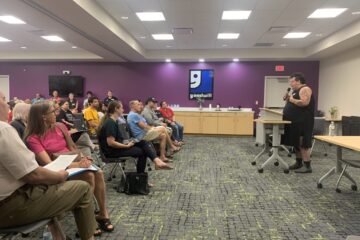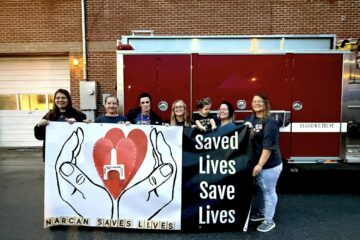This week, Charleston witnessed a major setback for public health efforts as the Kanawha-Charleston Health Department (KCHD) suspended its syringe service program. After months of mounting pressure from city officials citing public safety concerns, the health department paused the needle exchange portion of its broader harm reduction program — a critical service for people who inject drugs.
The suspension followed the announcement of new rules by Charleston Police Chief Steve Cooper, including strict limits on participants, mandatory IDs, a 1-for-1 needle return requirement, and the exclusive use of retractable needles. These changes sparked significant debate among public health advocates, medical experts, and community members concerned about the rise in infectious diseases such as HIV and hepatitis C.
Brenda Isaac, President of the Kanawha-Charleston Board of Health, voiced strong concerns about the influence of law enforcement-driven policies on medical programs, saying,
“If it’s a legal issue, a safety issue, a police issue, I have the utmost respect that our police chief knows what he’s doing, but we are the experts when it comes to public health. We do know public health.”
Isaac emphasized that while she is open to some compromise, such as adopting a 1-for-1 exchange policy and requiring IDs, she opposed the mandatory use of retractable needles, warning,
“The more I read about the retractable needles, it can be dangerous and it can do harm to the clients. As a health professional, I don’t think we can do that.”
Advocates stressed that programs like the one at KCHD are essential for curbing the spread of bloodborne illnesses and connecting people to care. The American Civil Liberties Union of West Virginia condemned the shutdown, with ACLU-WV Legal Director Jamie Lynn Croft stating,
“The death blow to Charleston’s needle exchange program today at the hand of Mayor Jones and Chief Cooper is appalling… We stand in support of any policy that decriminalizes drug paraphernalia and treats addiction for what it is: a public health issue.”
Even amidst heavy political pressure, Isaac affirmed the health department’s commitment to harm reduction:
“In the number one state for opioid addiction, this is a necessity to have a harm reduction program that includes syringe exchange.”
The future of the program remains uncertain. The Board of Health plans to consult legal experts, examine other programs like West Virginia Health Right’s, and engage first responders and elected officials in hopes of finding a sustainable path forward. Until then, harm reduction advocates warn that people who rely on clean syringes to protect their health will be left with fewer options — a dangerous situation in a region already grappling with surging overdose and infection rates.
Related Reading:


